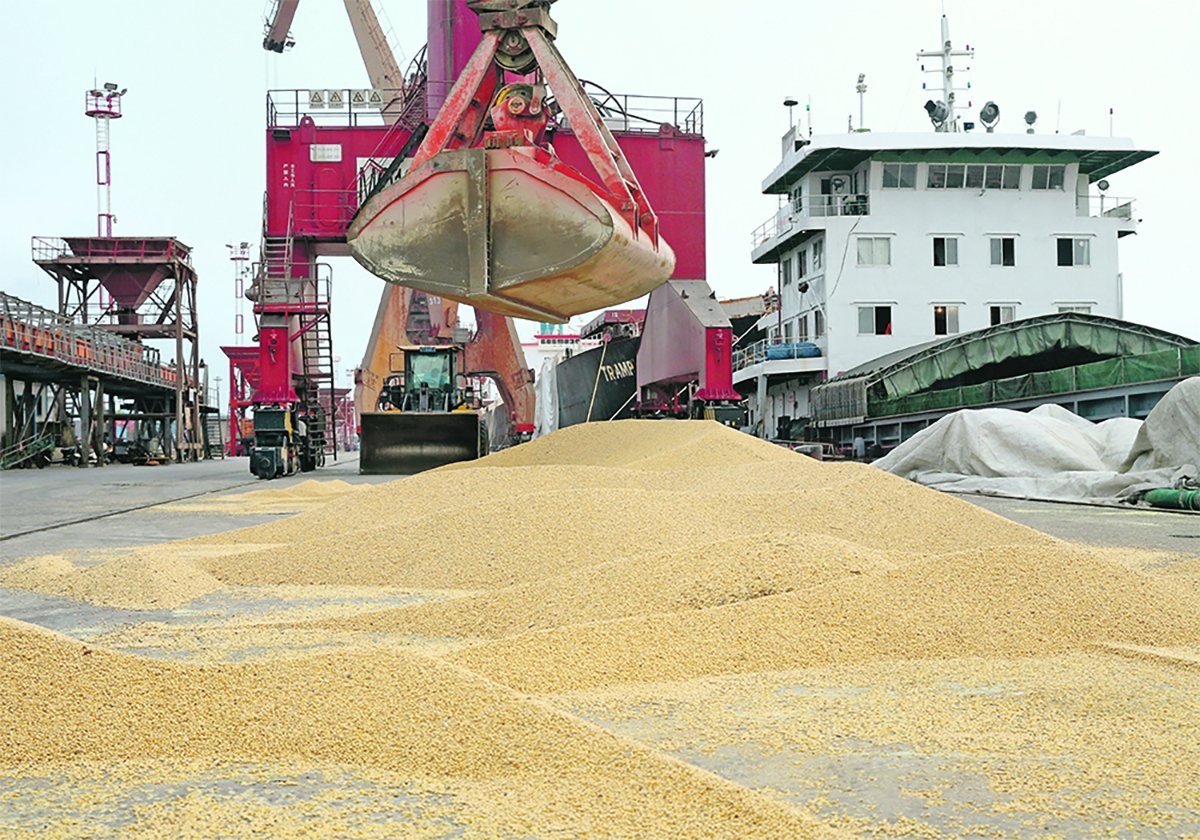Ottawa has sprung into action. It had to.
Following U.S. President-elect Donald Trump’s proposed 25 per cent tariff on all imports from Canada and Mexico, the Canadian government reacted swiftly. The stakes for Canada, which is heavily reliant on exports to the United States, couldn’t be higher.
Approximately 97 per cent of Canada’s total oil exports flow to the U.S., making such a tariff potentially catastrophic for the Canadian economy. While the U.S. would also suffer economic fallout, it is better positioned to weather the storm. Canada does not have that same cushion.
Read Also

U.S. soy subsidies will cause lasting damage to industry
Nothing illustrates the demise of world trade agreements more than the recent dispute between the United States and China.
Immediately after Trump’s threat, Prime Minister Justin Trudeau made a phone call to the president-elect to establish rapport. This effort was particularly significant given the tense relationship between the two leaders during Trump’s first term in office. Trudeau followed up with a high-stakes trip to Trump’s Mar-a-Lago estate for dinner Nov. 29.
However, Trump remained firm in his rhetoric, tying the tariff threat to border security and the ongoing fentanyl crisis.
A senior Canadian official told CBC News there was cautious optimism about finding a resolution and Canadians left Mar-a-Lago believing progress was possible.
Trudeau’s team appears ready to act. According to Global News, the prime minister promised to bolster border security, including acquiring new helicopters long sought by the RCMP. Trudeau reportedly assured Trump that this initiative was a done deal, with meetings planned for the following week to formalize the measures. Public Safety Minister Dominic LeBlanc also announced plans to allocate more funding for advanced technology, drones and additional personnel to patrol the border.
The RCMP announced Nov. 29 that it may redeploy a quarter of its eastern workforce to priority operational areas, including the Canada-U.S. border. Provincial leaders echoed the urgency. Ontario Premier Doug Ford called for increased federal funding for law enforcement, offering Ontario Provincial Police resources to assist in border security efforts. Alberta Premier Danielle Smith went a step further, suggesting the creation of a provincial border patrol.
Smith also stressed the importance of energy security in U.S.-Canada relations. She highlighted that oil and gas pipelines were a key topic of discussion between Trudeau and Trump, emphasizing their role in strengthening economic and security ties.
“It once again demonstrates that the path to a strong security and economic relationship with the United States is directly tied to our nation’s commitment to providing the United States with the oil and gas it requires to achieve its energy security and affordability goals,” she stated.
Smith urged Trudeau to scrap the federal government’s planned oil and gas emissions cap and prioritize new pipeline infrastructure. While such measures would likely appease U.S. concerns, they risk undermining Canada’s international climate commitments.
Trudeau remains optimistic about resolving the issue. Reflecting on his government’s ability to renegotiate the North American Free Trade Agreement during Trump’s first term, he emphasized Canada’s ability to secure a mutually beneficial relationship with its southern neighbour.
“We rolled up our sleeves and we created growth across both sides of the border,” Trudeau told reporters.
The situation underscores the fragility of Canada’s economic ties with the U.S., highlighting the urgency for strategic action. While Trudeau’s government appears ready to make concessions, the path forward is fraught with economic and political challenges.
Toronto-based Rashid Husain Syed is an analyst specializing in energy and politics with a particular emphasis on the Middle East. This column first appeared on the Troy Media website. It has been edited for length.















